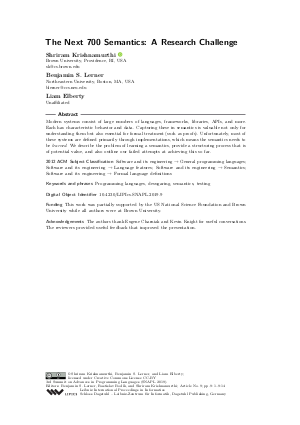LIPIcs.SNAPL.2019.9.pdf
- Filesize: 478 kB
- 14 pages

 Creative Commons Attribution 3.0 Unported license
Creative Commons Attribution 3.0 Unported license










Feedback for Dagstuhl Publishing